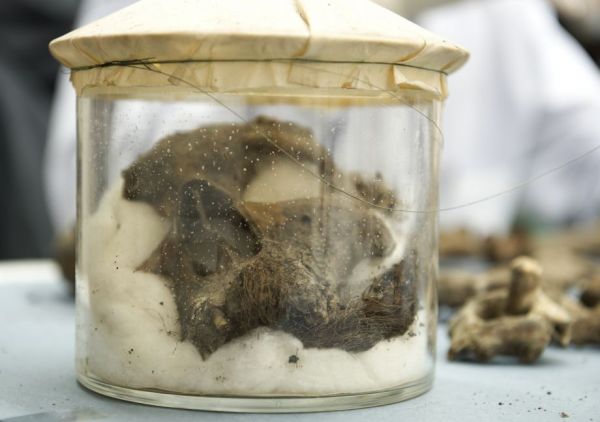56 Vette.
Carolina Naturally is read in 191 countries around the world daily.
Today is National Sibling Day
Don't forget to visit our sister blog!
| 1790 | The U.S. patent system is established. | |
| 1809 | Austria declares war on France and her forces enter Bavaria. | |
| 1862 | Union forces begin the bombardment of Fort Pulaski in Georgia along the Tybee River. | |
| 1865 | At Appomattox Court, Va, General Robert E. Lee issues his last orders to the Army of Northern Virginia. | |
| 1866 | The American Society for Prevention of Cruelty to Animals (ASPCA) is formed. | |
| 1902 | South African Boers accept British terms of surrender. | |
| 1912 | The Titanic begins her maiden voyage which will end in disaster. | |
| 1925 | F. Scott Fitzgerald publishes The Great Gatsby. | |
| 1930 | The first synthetic rubber is produced. | |
| 1932 | Paul von Hindenburg is elected president in Germany. | |
| 1938 | Germany annexes Austria. | |
| 1941 | U.S. troops occupy Greenland to prevent Nazi infiltration. | |
| 1945 | In their second attempt to take the Seelow Heights, near Berlin, the Red Army launches numerous attacks against the defending Germans. The Soviets gain one mile at the cost of 3,000 men killed and 368 tanks destroyed. | |
| 1945 | Allied troops liberate the Nazi concentration camp of Buchenwald north of Weiner, Germany. | |
| 1947 | Jackie Robinson becomes the first black to play major league baseball as he takes the field for the Brooklyn Dodgers. | |
| 1953 | House of Wax, the first 3-D movie, is released. | |
| 1971 | The American table tennis team arrives in China. | |
| 1974 | Yitzhak Rabin replaces resigning Israeli Prime Minister, Golda Meir. | |
| 1981 | Imprisoned Irish Republican Army hunger striker Bobby Sands is elected to the British Parliament. |

I am insisting that if we women truly want equal partners in the home, then we can't ask our husbands to be "equal" on our terms. They get equal say, even if we disagree. And indeed, if we can discover the joys and satisfactions of professional success, why shouldn't men be able to enjoy the rewards and satisfactions of parenting and homemaking? For years, mothers have gotten that special rush when a child reaches for his mommy and says no one else will do; do we really think a father doesn't get the same wonderful sense of being needed and valued when a child insists on his daddy?
Lisa Miller quotes therapist Barbara Kass in a blunt assessment of the problem. According to Kass, "So many women want to control their husbands' parenting. 'Oh, do you have the this? Did you do the that? Don't forget that she needs this. And make sure she naps.' Sexism is internalized." If women assume that we can do anything men can do (backwards and in heels, a la Ginger Rogers versus Fred Astaire,) and that we are superior in the home, we will never actually value men enough for them to experience the rewards of being fully equally partners. As my teenage sons frequently remind me, sexism cuts both ways.

 A five-year-old boy in Springfield, Ohio was sent home last week
because school district officials deemed his new Mohawk hairdo too cool
for kindergarten.
A five-year-old boy in Springfield, Ohio was sent home last week
because school district officials deemed his new Mohawk hairdo too cool
for kindergarten.

 Mexico City authorities say seven workers died while cleaning a tank at a Grupo Modelo brewery in Mexico City.
A spokeswoman for city prosecutors says the accident occurred early
Sunday and that investigators are looking into whether the workers died
from inhaling toxic fumes. The official spoke on condition of anonymity
because she was not authorized to discuss the case.
Mexico City authorities say seven workers died while cleaning a tank at a Grupo Modelo brewery in Mexico City.
A spokeswoman for city prosecutors says the accident occurred early
Sunday and that investigators are looking into whether the workers died
from inhaling toxic fumes. The official spoke on condition of anonymity
because she was not authorized to discuss the case.



 What
has happened to telephone landline and CD sales is coming to television.
And that has got broadcasters worried.
What
has happened to telephone landline and CD sales is coming to television.
And that has got broadcasters worried.Some people have had it with TV. They've had enough of the 100-plus channel universe. They don't like timing their lives around network show schedules. They're tired of $100-plus monthly bills.
A growing number of them have stopped paying for cable and satellite TV service, and don't even use an antenna to get free signals over the air. These people are watching shows and movies on the Internet, sometimes via cellphone connections. Last month, the Nielsen Co. started labeling people in this group "Zero TV" households, because they fall outside the traditional definition of a TV home. There are 5 million of these residences in the U.S., up from 2 million in 2007.

 Way
back when, Michael Levitt was told by his fellowship advisor that he should
use the new technique of gas chromatography to study farts. When Levitt
asked him why, he replied "Because you’re pretty much of an
incompetent, and this way if you discover anything, at least it’ll
be new, and you’ll be able to publish something."That started Levitt's journey into becoming the world's foremost expert
on flatulence:
Way
back when, Michael Levitt was told by his fellowship advisor that he should
use the new technique of gas chromatography to study farts. When Levitt
asked him why, he replied "Because you’re pretty much of an
incompetent, and this way if you discover anything, at least it’ll
be new, and you’ll be able to publish something."That started Levitt's journey into becoming the world's foremost expert
on flatulence:Levitt published thirty-four papers on flatus. He identified the three sulfur gases responsible for flatus odor. He showed that it is mainly trapped methane gas, not dietary fiber or fat, that makes the floater float. Most memorably, to this mind anyway, he invented the flatus-trapping Mylar “pantaloon.” [...]Mary Roach of Salon explores the matter in great (and when we say great, we mean it) details, including things like a pill that deodorizes your fart from the inside, the theory of fecal self-poisoning, and more: Here
The great variety of flatus smells — from person to person and from meal to meal — presented a quandary for the second phase of the study, the evaluation of various odor-eliminating products. Which — whose — wind should represent the average American’s? No one’s, as it turned out. Using mean amounts from chromatograph readouts as his recipe and commercially synthesized gases as the raw ingredients, Levitt concocted a lab mixture deemed by the judges “to have a distinctly objectionable odour resembling that of flatus.” He reverse-engineered a fart.
 There
was no actual snake oil in old timey snake oil (except when there was,
of course). Rather, most of the lotions and potions sold by early 20th
century miracle medicine salesmen actually contained mercury and lead.
Now, don't you feel better? University of Detroit Mercy chemists
recently analyzed the ingredients of several dozen patent medicine
samples from the Henry Ford Museum's collection. From Smithsonian:
There
was no actual snake oil in old timey snake oil (except when there was,
of course). Rather, most of the lotions and potions sold by early 20th
century miracle medicine salesmen actually contained mercury and lead.
Now, don't you feel better? University of Detroit Mercy chemists
recently analyzed the ingredients of several dozen patent medicine
samples from the Henry Ford Museum's collection. From Smithsonian:
Their findings, which they presented yesterday at the annual meeting of the American Chemical Society in Atlanta, were that many of the pills, powders and ointments tested had beneficial ingredients like calcium and zinc—but that others had toxins such as lead, mercury and arsenic. Back in the day, this was a very trial-and-error kind of field,” (chemist Mark) Benvenuto said in an interview. “The stuff that we think of as dangerous now, though it was dangerous, was as cutting-edge as they had at the time.”

 The Going of the Nose
The Going of the Nose Brahe
later received at least one replacement nose for his first replacement
nose. We know this because when his body was exhumed, a light greenish
coloration on his front cranium was interpreted to be remains of a
metal mixture that included copper. The original replacement nose -the
nose that everybody had been looking forward to seeing- was, however,
gone. The thin metal had corroded, and the coffin made of zinc may have
speeded the corrosion process.
Brahe
later received at least one replacement nose for his first replacement
nose. We know this because when his body was exhumed, a light greenish
coloration on his front cranium was interpreted to be remains of a
metal mixture that included copper. The original replacement nose -the
nose that everybody had been looking forward to seeing- was, however,
gone. The thin metal had corroded, and the coffin made of zinc may have
speeded the corrosion process. Deny
climate change all you want, but just get used to a bumpy ride. A really
bumpy airplane ride, that is:
Deny
climate change all you want, but just get used to a bumpy ride. A really
bumpy airplane ride, that is:For their analysis, they simulated atmospheric conditions at an altitude of about 12 kilometers (a typical cruise altitude for airliners) in the northern portion of the North Atlantic, a region that includes most transatlantic routes. During winter months, when clear-air turbulence is at its worst in that area, 16 of the 21 often-used ways in which scientists measure turbulence suggest that the average intensity of the plane-rattling phenomenon (image depicts turbulence intensity on a random winter day) will be between 10% and 40% stronger when CO2 concentrations are double their preindustrial value, the researchers report online today in Nature Climate Change. Accordingly, the frequency of moderate-or-greater turbulence—intensities at which passengers will experience accelerations of 0.5 g or more, which are strong enough to toss items about the cabin—will rise by between 40% and 170%.












